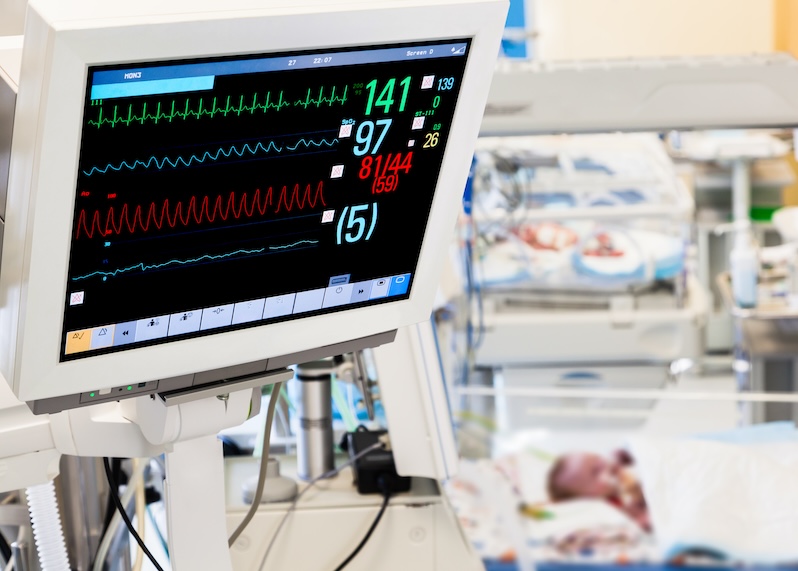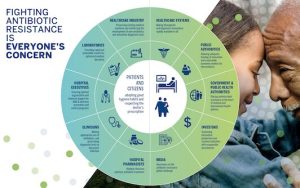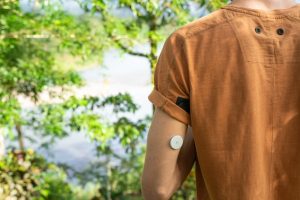Developing new technology for checking newborn heart rates

When Scarborough Health Network (SHN) launched its new Research Institute in 2022, it signaled the start of an expanded and more focused approach towards providing better health through research that matters to Scarborough. This was a calling to all of the researchers across SHN to be a part of a new movement aimed at translating research findings and knowledge into practice and policy, including Dr. Niraj Mistry, a general pediatrician at SHN for more than 10 years.
As an advocate of user-centred design in healthcare technologies, Dr. Mistry aims to enhance care and treatment, as well as the patient and family experience.
“Now with SHN Research Institute, clinicians have help to be able to get research started in pursuit of Scarborough-made solutions,” said Dr. Mistry. “This will be a game-changer in helping build our credibility and prominence on the most important stages of healthcare research.”
The goal of Dr. Mistry’s research through the SHN Research Institute is to develop new technology for detecting a newborn baby’s heart rate. Knowing a baby’s heart rate quickly is essential, especially in situations where a newborn may be experiencing complications or require resuscitation.
“Currently around the world, healthcare providers use stethoscopes for checking heart rates, including babies. But imagine the new and innovative possibilities enabled by the use of the latest technology for digitally assessing heart rates. That’s what our research is focused on,” he said.
Dr. Mistry and his counterpart, Dr. Sri Krishnan, with the help of PhD student Abdelrahman (Sammy) Abdou, from Toronto Metropolitan University have developed a handheld, miniature ECG sensor. It uses baby-friendly 3D-printed dry electrodes that do not stick to the baby, and it uses machine learning software to detect the baby’s heart rate quickly and accurately. It does all this on-board the sensor with low power consumption so the heart rate can be taken at the point of care and displayed on a screen, to enable the appropriate medical decisions and interventions to give every infant the best start at life.
“One of our greatest challenges in working with babies at birth is that some are very small,” Dr. Mistry explained. “The point of our research study is to see how effective this novel ECG sensor is in detecting a heart rate in both premature and full-term newborns. It is really a proof-of-concept study.
“ECG is a tried and true technology, but we don’t yet know a lot about the use of ECGs with babies, or its implications among different ethnic backgrounds. We have to ask ourselves, is there a different signal or different heart rate parameters?”
For Dr. Mistry, SHN Research Institute promotes the kind of study of population health that considers these demographic factors, resulting in better ways of delivering the high-quality, equitable care Scarborough deserves. Importantly, Dr. Mistry also has a strong, personal connection to Scarborough, its people, and the community at large.
“I grew up with family members who were newcomers to Canada, living in the Markham and Ellesmere area,” he recalled. “I know the area well. It’s an awesome and hard-working group of incredible people. It is also a place where we see a lot of diverse and complex conditions that are unique to Scarborough.”
This presents a huge opportunity to learn through research about delivering healthcare to diverse patient populations. But the work is only effective if the population sees that it is meaningful to them and are willing to participate.
“When you’re doing research locally, a lot of patients want to contribute. This is an opportunity to have our community at-large be involved and make a difference in healthcare.
“As a doctor, the patients I’ve treated at SHN have always impacted me. They are so kind and grateful. But Scarborough hasn’t always gotten the attention it needs compared to the downtown Toronto hospitals. With the SHN Research Institute, we can leverage our diverse and engaged community to achieve the triple aim of enhancing the patient experience, improving population health, and
reducing healthcare costs.”
As a general pediatrician at SHN for more than 10 years, and an award-winning medical educator and assistant professor at the University of Toronto, Dr. Mistry practices hospital-based acute care pediatrics, general pediatrics and neonatology, with a subspecialty in pediatric bowel and bladder dysfunction. In addition, he brings academic pediatric fellowship training from SickKids Hospital and a Master’s degree in health informatics from McMaster University. n








